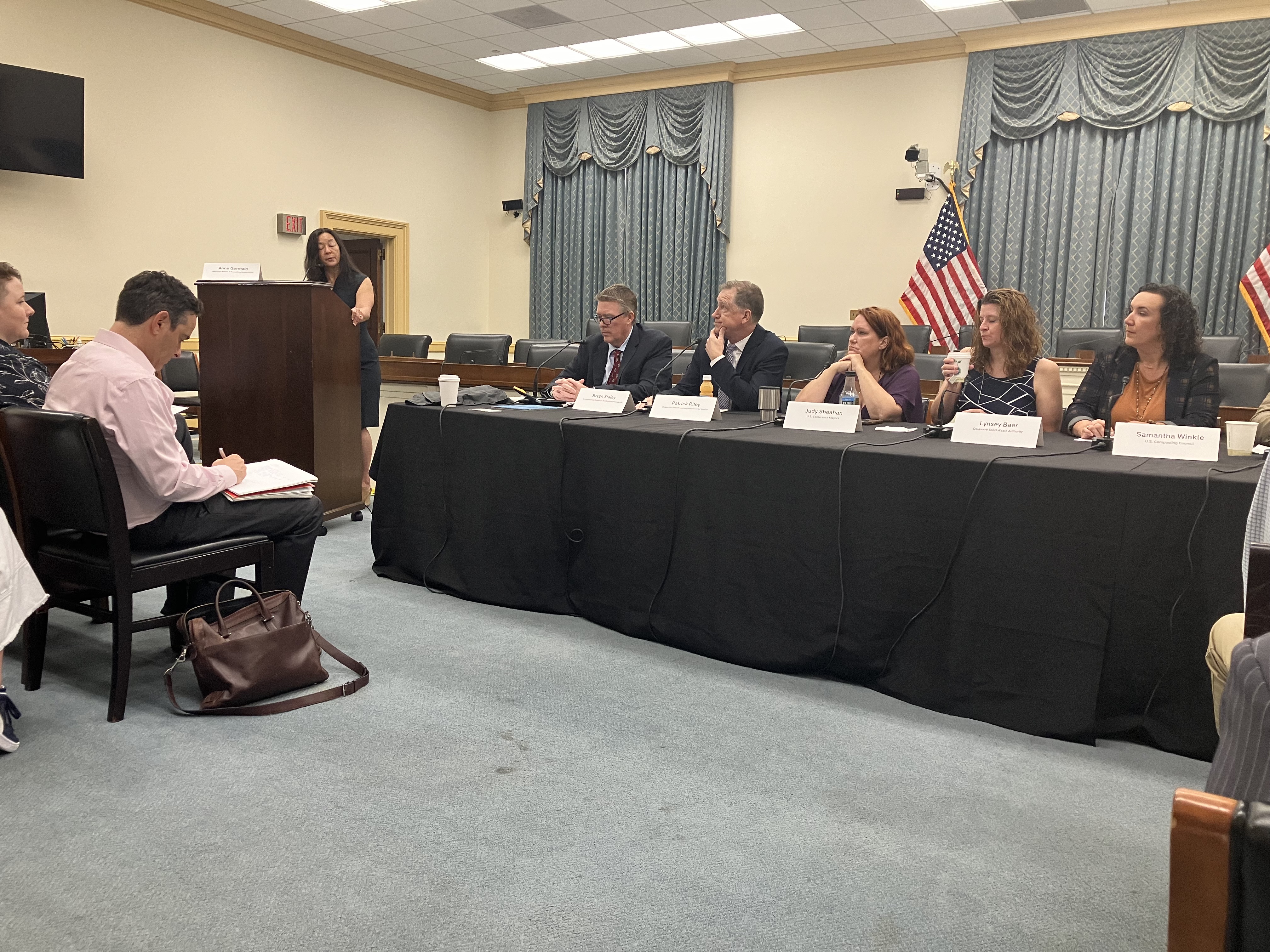USCC Testifies for House Energy and Commerce Committee For PFAS Relief
 |
|
| Samantha Winkle (2nd from left); Linda Norris-Waldt (far right) |
On Sept. 16, Samantha Winkle, USCC treasurer and assistant district manager for Waste Connections, represented the USCC and the compost industry in a hearing on Capitol Hill before staff of the House Energy and Commerce Committee. The hearing was held to answer questions for the first time from the U.S. House of Representatives about the need for passive receivers, like compost producers, to be exempt from liability for cleanup under the Comprehensive Environmental Response, Compensation, and Liability Act (CERCLA).
Passive receivers are entities who have to handle a group of chemicals known as PFAS in their operations that have come from other sources, such as wastewater, consumer products, and food. PFAS – short for perfluoroalkyl and polyfluoroalkyl substances – are ubiquitous in manmade materials, typically used for moisture repellence and stain resistance. Often described as forever chemicals, PFAS don’t degrade naturally and are believed to be capable of lingering indefinitely in the environment; some traces have even been identified at the North Pole, likely arriving through precipitation. While there have been instances of PFAS being found in compost, they’re usually found at low levels, around 30 ppb, short for parts per billion. For reference, products such as makeup, popcorn bags, Teflon, Gore-Tex clothing, and carpets can carry up to 1,000 ppb.
 |
|
| Samantha Winkle (far right) |
Composters required to pay for cleanup of PFAS would be devastating to the industry and the financial health of compost producers; Winkle emphasized compost benefits for the climate and jobs are critical and would be lost through prosecution of these small amounts. The USCC has banded with other passive receivers such as landfills and wastewater treatment facilities unable to separate or destroy PFAS in products which come into their facilities. We have also supported bans on PFAS in consumer products to reduce their impact until destruction technologies evolve.
Other PFAS news
It has been a busy month on the PFAS front, with a few other major developments:
- A number of universities across the U.S. have been awarded a combined $15 million in federal research funding to obtain data on the extent of plant uptake of PFAS in biosolids and compost. The USCC has been lobbying for two years for federal funding for this type of research, so this is a big win! https://www.epa.gov/research-grants/research-grants-understanding-pfas-uptake-and-bioaccumulation-plants-and-animals
- A New York Times story that focused on PFAS in soils with no comment from the compost industry was rebutted by Sally Brown in a BioCycle column. See the newsletter’s “In the Headlines” section for the column.
- We urge members to review the PFAS web page and PFAS toolkit (your login required) to be prepared to respond to this issue. Also, share our new Instagram post that dispels notions that PFAS is created in or purposefully added to compost. https://www.instagram.com/reel/DAB_EGrPgZT/?utm_source=ig_web_copy_link&igsh=MzRlODBiNWFlZA==